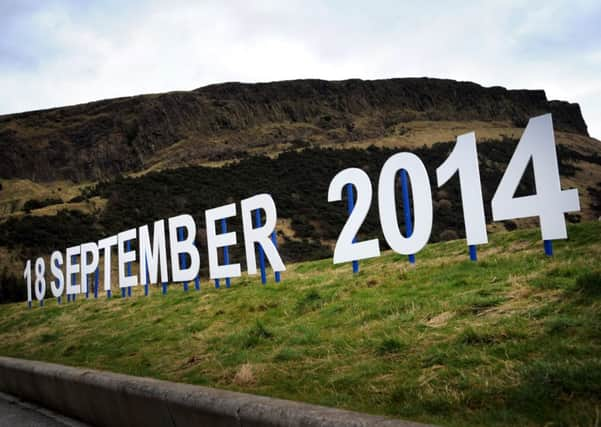Jan Vardøen: Scotland can mirror Norway success


Sweden held on to us for a little under 100 years until Norway held a referendum in 1905 and overwhelmingly voted for our independence from them, which we have since held onto.
Norway’s relationship to her Scandinavian neighbours has been fraught at times, although nowhere near as complicated as Scotland’s relationship to England. We have traditionally been seen as the younger, country bumpkin brother by the high lords in Denmark and Sweden and if truth be told, we have often felt very parochial and ungainly in comparison to them.
Advertisement
Hide AdAdvertisement
Hide AdNorway has been achingly poor for many centuries and our small wooden houses and farms seem pathetically twee compared to the stone palaces in Stockholm and Copenhagen.
But we have thrived on independence. While trying not to blow our own trumpet (not a popular Norwegian trait) we have become the richest nation on the planet with arguably the best standard of living in the world, the most equal division of wealth, a highly functioning and fair social and welfare network and a calm and just political system run on the proportional representation model.
‘Norway canny with oil in 1960s’
Ok, we haven’t reached Utopia quite yet and, yes, we do have our problems, but in the larger scale of things we’re not doing too badly and I think we’re a lot closer to where humane and peaceful people think the world should be. But it is a constant battle; there will always be forces of self-interest who will try to derail progress for their own private gain and attacks on the social and political status quo can take decades to repair.
One of the reasons for our current high standard of living is undeniably petroleum. Norway was pretty canny in the late sixties when oil was discovered off our shores, carving up the territories between our Danish and Swedish neighbours in such a way that we were left with pretty much all there was to have, before they woke up and realised its potential. And the industry was nationalised from the start, meaning that the largest proportion of the profits stayed in Norway and was shared equally amongst the populace.
To avoid galloping inflation, successive governments have avoided falling into the “spend, spend, spend” trap by setting up the world’s largest pension fund and using this to invest outside of Norway.
When London cries wolf over the imminent end of oil resources in the North Sea, I have to wonder if their motives are entirely pure. Oil reserves are still being found, but the overriding principle of self-determination is even more important. Scotland’s right to decide what to do with her own resources is paramount and, if I may be allowed to suggest, the Norwegian model of nationalisation and equal sharing has proved to be much more beneficial to our entire society than giving away the profits to the select and avaricious few.
But oil is not our only resource. Industry, fishing and other natural resources play a very important part of our economy and the principle of self-determination over our own assets has been a decisive factor in our current and stable good fortune.
‘Currency row seems odd’
Advertisement
Hide AdAdvertisement
Hide AdThe discussion around currency also seems quite odd, seen from our standpoint: Norway, Sweden and Denmark all have separate and unique currencies and no harm has occurred so far. In fact, being pinned to an independent currency has sometimes helped us weather the vagaries of international finance. And if in the unlikely event of you not keeping Sterling (although God knows why not, it’s just as much yours as the English), create your own coin or use the Euro. The possibilities are legion and the scare mongering from the English side seems a bit desperate, to be honest.
Norway is not part of the EU and seems to be doing fine. Personally I find it a selfish and self-serving choice, but it shows that EU membership is not a decisive factor for the welfare of a nation. Norway is pretty much bound by EU rules, benefits and regulations anyway. The idea that the EU would not welcome Scotland is patently ridiculous; the EU will always be interested in expanding and welcoming in nations of good standing, anyone who says different is only shilling for the no side, in my opinion.
‘Self-determination strongest motive’
But when it comes down to it, putting all the above arguments aside, the beautiful notion of a nation deciding its own fate must be the strongest motive for independence. Norway, Sweden, Denmark, and Finland are all independent countries, but there is very little animosity and a huge amount of affection for each other. We thrive in this fashion (Sweden, Finland and Denmark consistently being rated the richest countries in the world, with the highest standards of living) and while I really hope we don’t come off as smug, I think we must have stumbled upon a recipe that works and would work just as well for Scotland.
We share so many traits; our language, forefathers, landscape, resources and the bloody weather, that the chances are very good.
This referendum is a golden chance to create a fair, wealthy and healthy nation; grab it now and take the reins into your own hands, neighbour.
• Jan Vardøen is a Norwegian filmmaker, television personality, restaurateur and businessman.